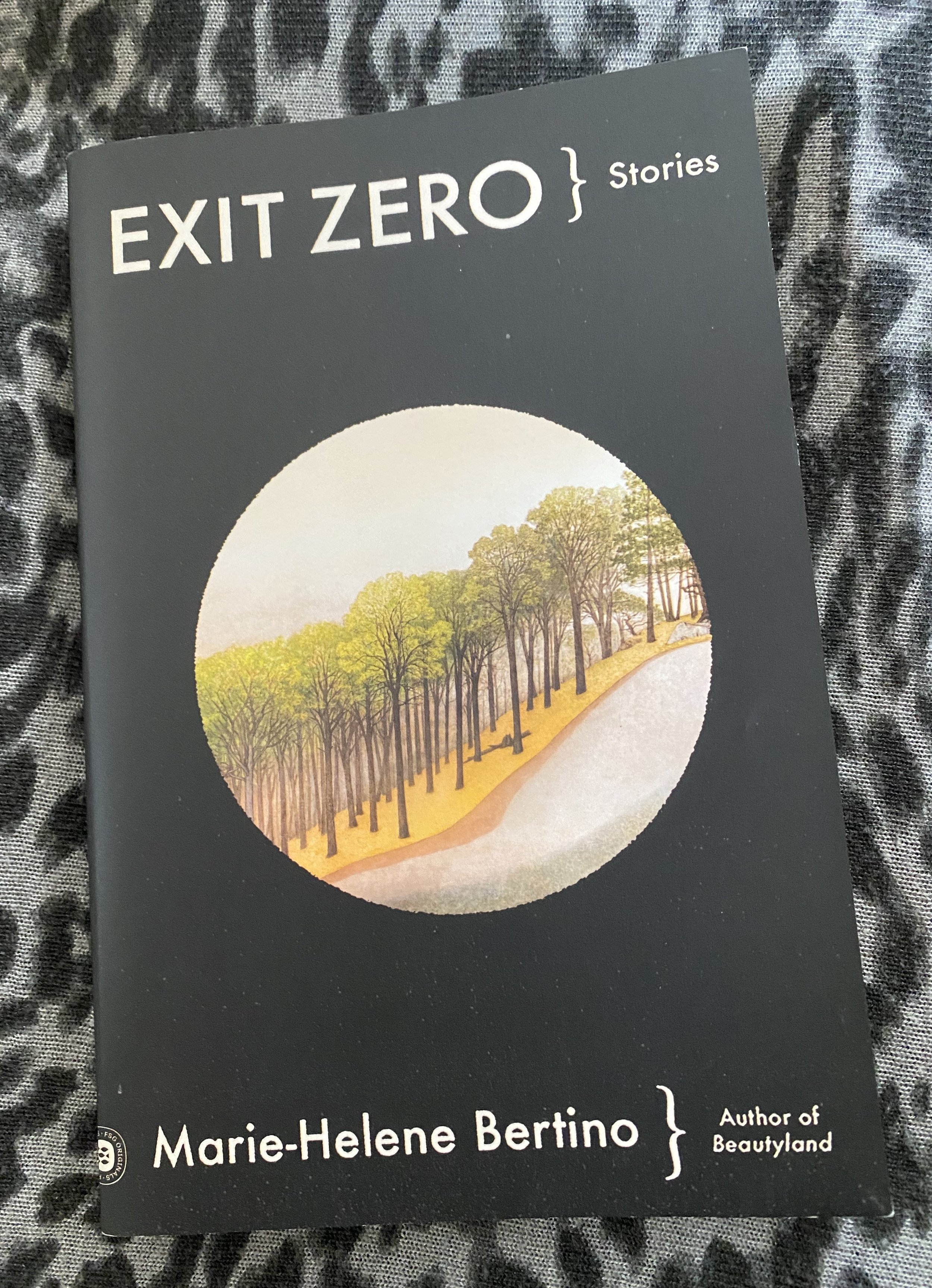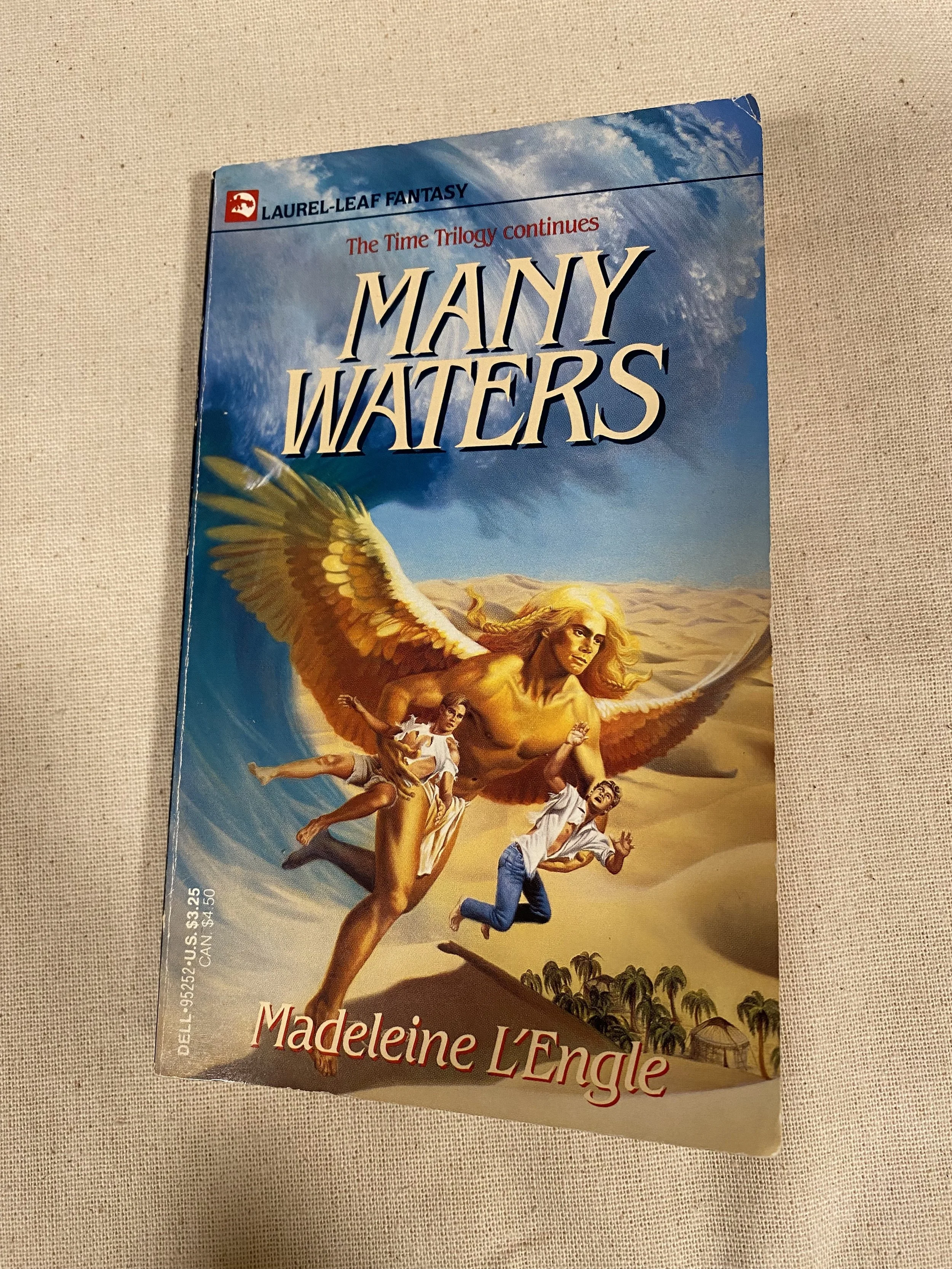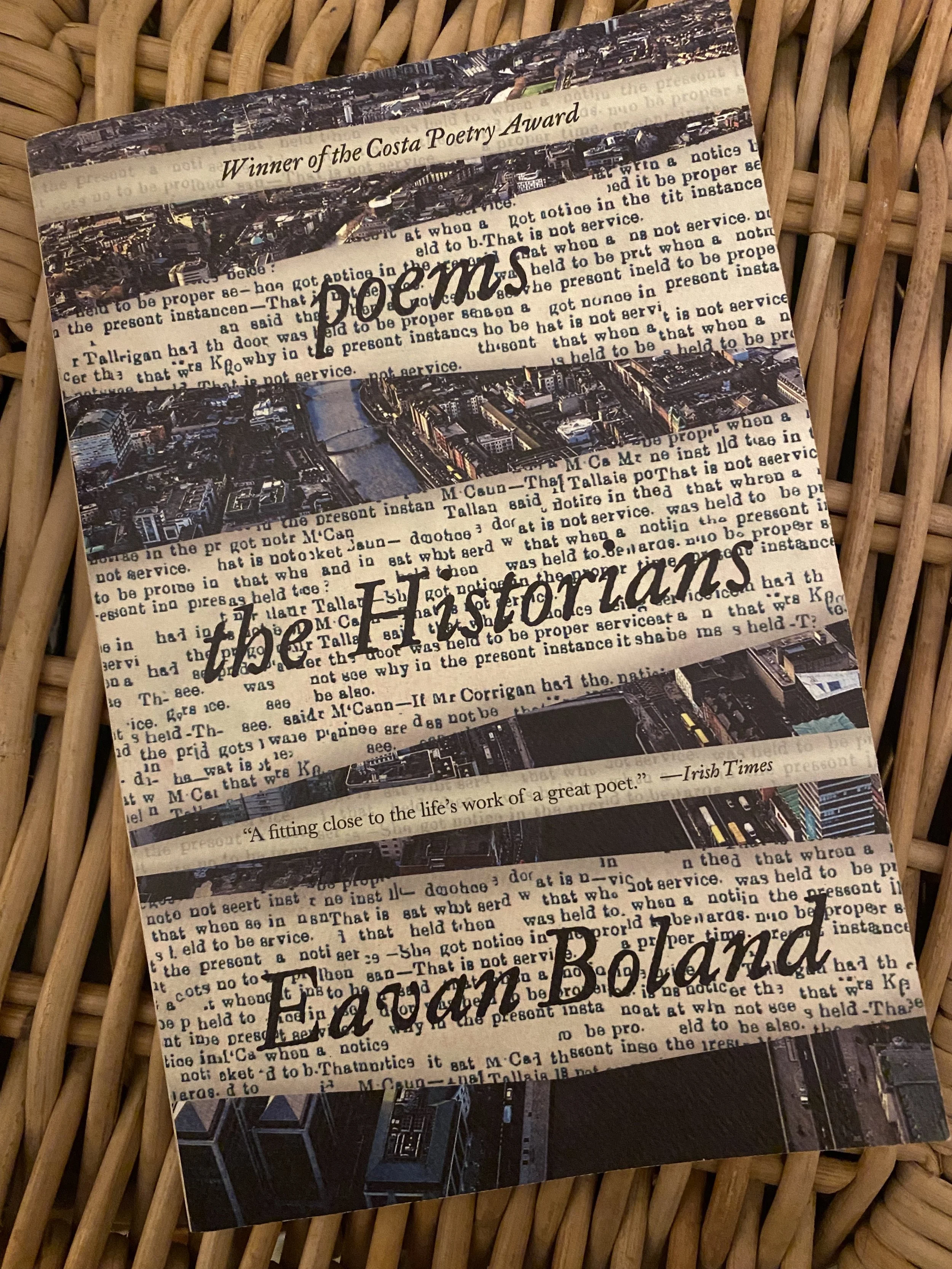3/5 stars
What's it about? The twelve strange stories capture endings—of lives, of relationships, of expectations. Vampires, balloon messengers, and even haunted peaches populate Bertino’s reality.
How’d I find it? A dear friend recommended Bertino’s novel Beautyland, so I picked up these stories as well.
Who will enjoy this book? If you liked Out There by Kate Folk or Karen Russell’s Orange World, you’ll want to pick this up.
What stood out? Exit Zero is ripe with ingenuity. A woman inherits a unicorn after her estranged father dies. Another finds herself hopelessly trapped in an episode of Cheers. The sky rains ex-lovers. The title story and “The Night Gardener” are standouts.
Which line made me feel something? From “Flowers and Their Meanings:” “I think of my friend’s daughters peering out from the webbed shade of the screen door. The aluminum sneeze when it snaps back, the cheap, measly circumstances that trap them.”









